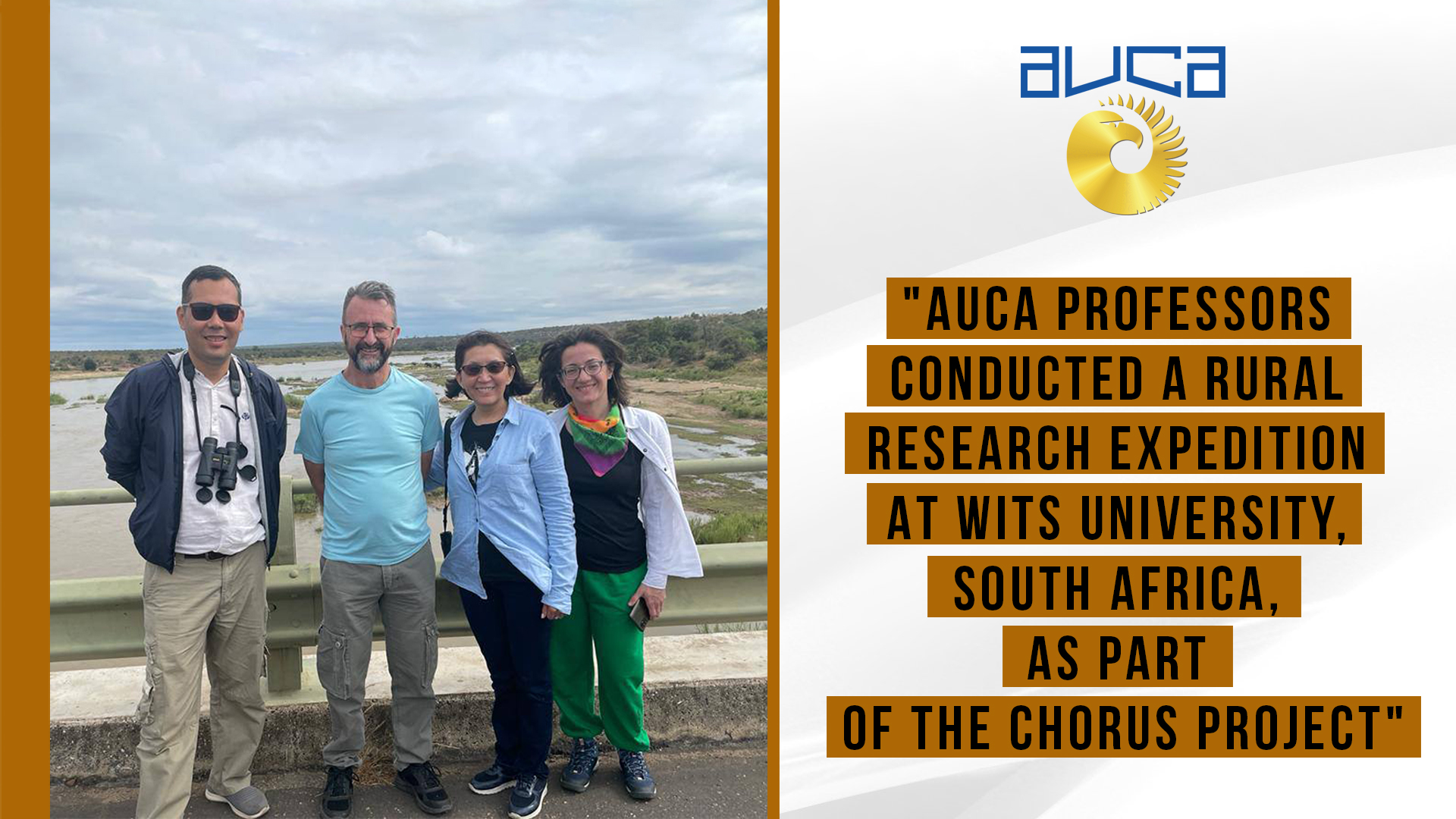October 18, 2023

��"CHORUS Project: Enhancing Rural Sustainability Across Continents"
From May 15-29, in a groundbreaking initiative, AUCA Professors�� Cholpon Turdalieva and Ruslan Rakhimov embarked on a Rural Research Expedition at Wits ��ɫtv in South Africa as part of the CHORUS Project. This project, a collaborative effort between Central European ��ɫtv, ��ɫtv of the Witwatersrand, ��ɫtv, and American ��ɫtv of Beirut, is set to redefine the landscape of rural sustainability research and education in South Africa, Kyrgyzstan, and Lebanon.
CHORUS, which stands for "Curriculum for Strengthening the Teaching, Learning, and Research for the Sustainability of Rural Livelihoods," aims to address pressing global issues. It brings together partner institutions from both the global North and South, creating a unique space for interdisciplinary co-learning, faculty exchange, and the development of rural sustainability curricula.
.jpg)
.jpg)
At its core, the CORUSUS Project seeks to tackle complex social-ecological challenges that are pertinent to rural areas in these three distinct countries. These challenges include poverty alleviation, food security, and the sustainable use of natural resources. By uniting the expertise and resources of universities from different corners of the world, CORUSUS is on a mission to foster change and innovation in the sphere of rural sustainability.
The collaboration of Central European ��ɫtv, ��ɫtv of the Witwatersrand, ��ɫtv, and American ��ɫtv of Beirut brings together a diverse range of knowledge and experiences. Each institution contributes its unique perspective, creating a melting pot of ideas and insights that promises to advance the field of rural sustainability.
.jpg)
.jpg)
The involvement of AUCA Professors Cholpon Turdalieva and Ruslan Rakhimov�� in a research expedition to Wits ��ɫtv, South Africa, underscores the global nature of the CORUSUS Project. It's about breaking down geographical boundaries and sharing knowledge to address common challenges. Through this kind of international collaboration, valuable experiences and best practices are exchanged, ultimately benefiting the regions involved.
One of the key elements of the CORUSUS Project is its commitment to providing solutions that are not only theoretical but also practical. By facilitating student exchange and involving them in real-world research and community engagement, CORUSUS ensures that the knowledge gained can be applied on the ground. This empowers students to be the agents of change in their own communities and nations.
.jpg)
.jpg)
.jpg)
.jpg)
.jpg)
.jpg)
��